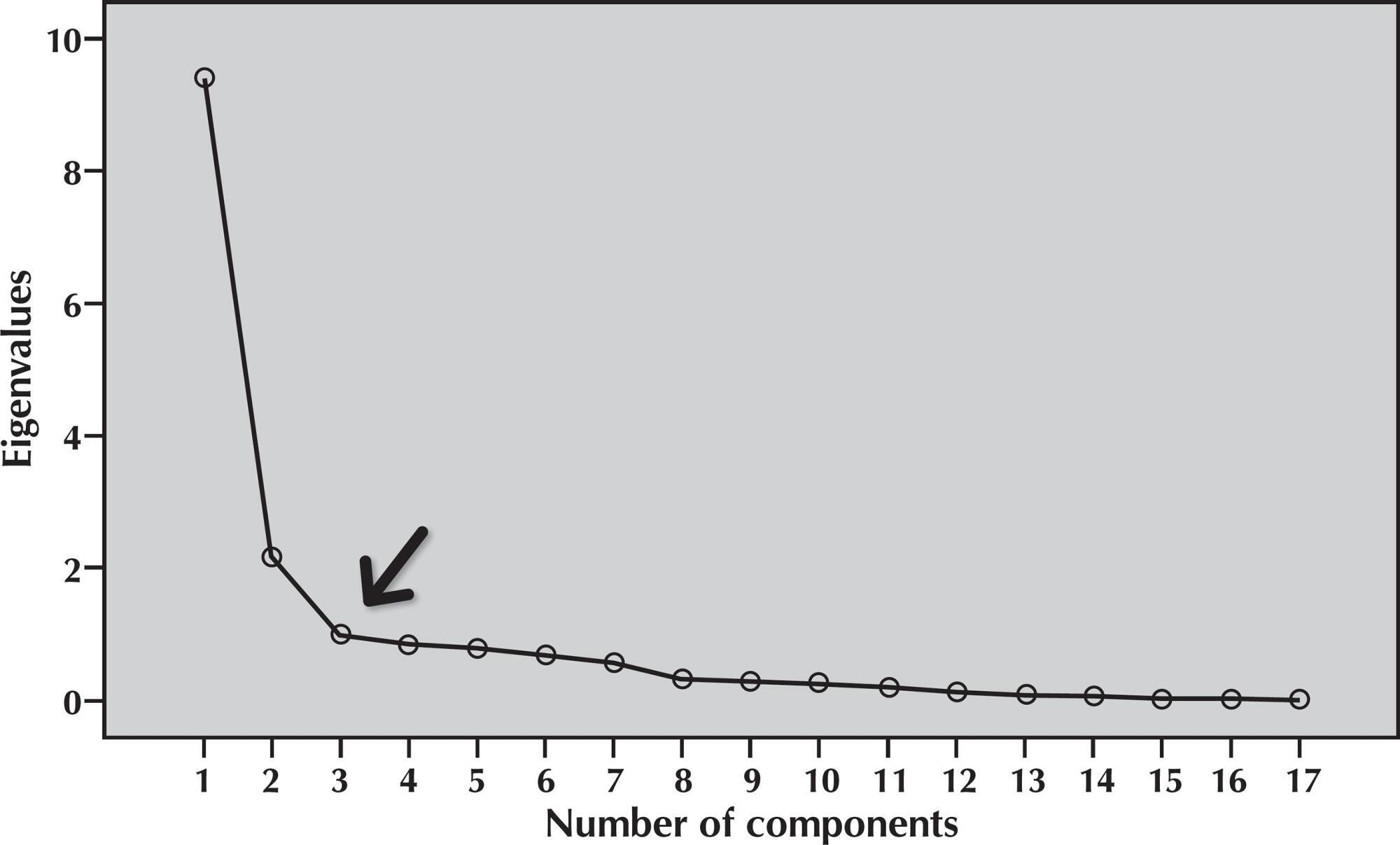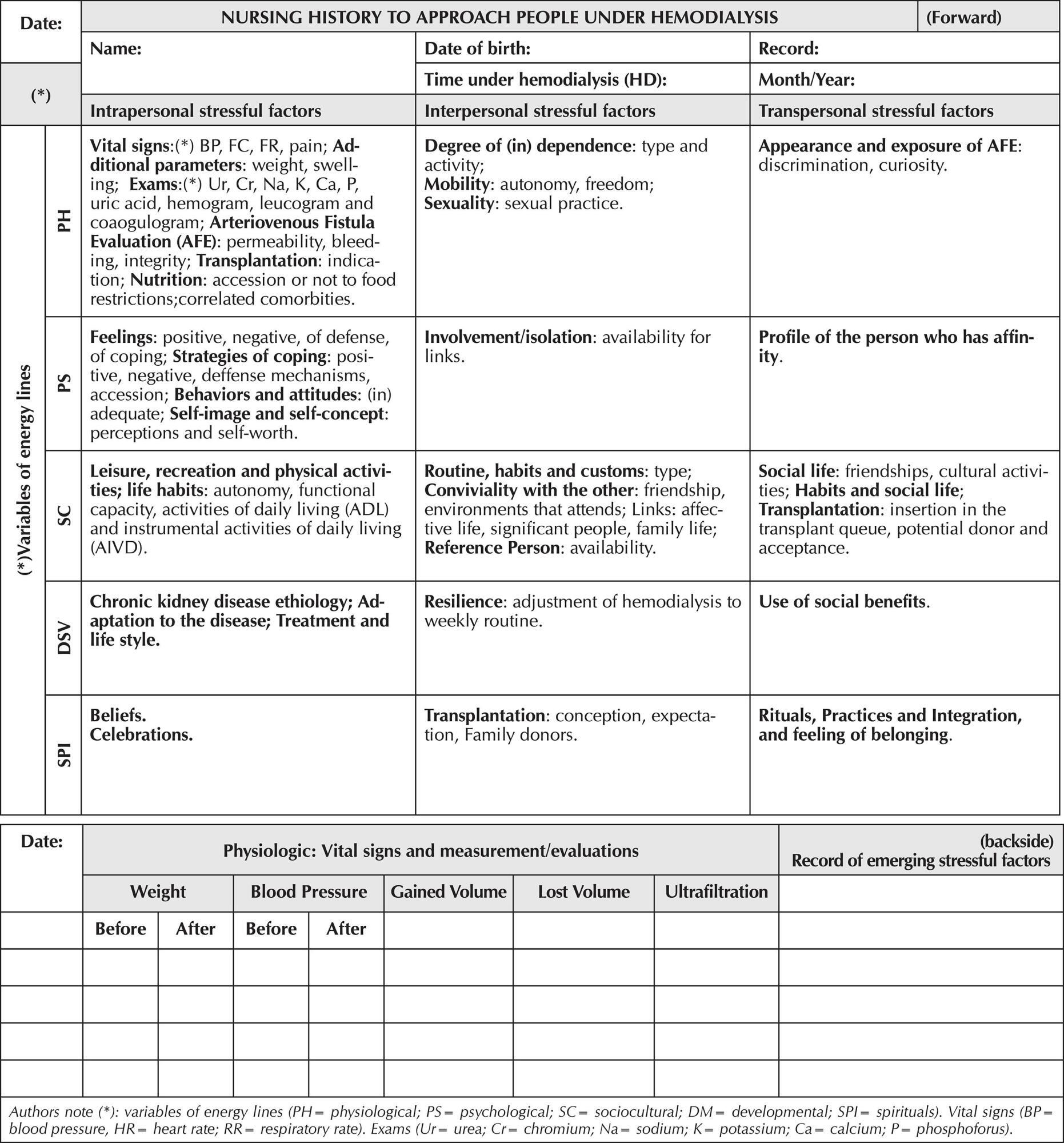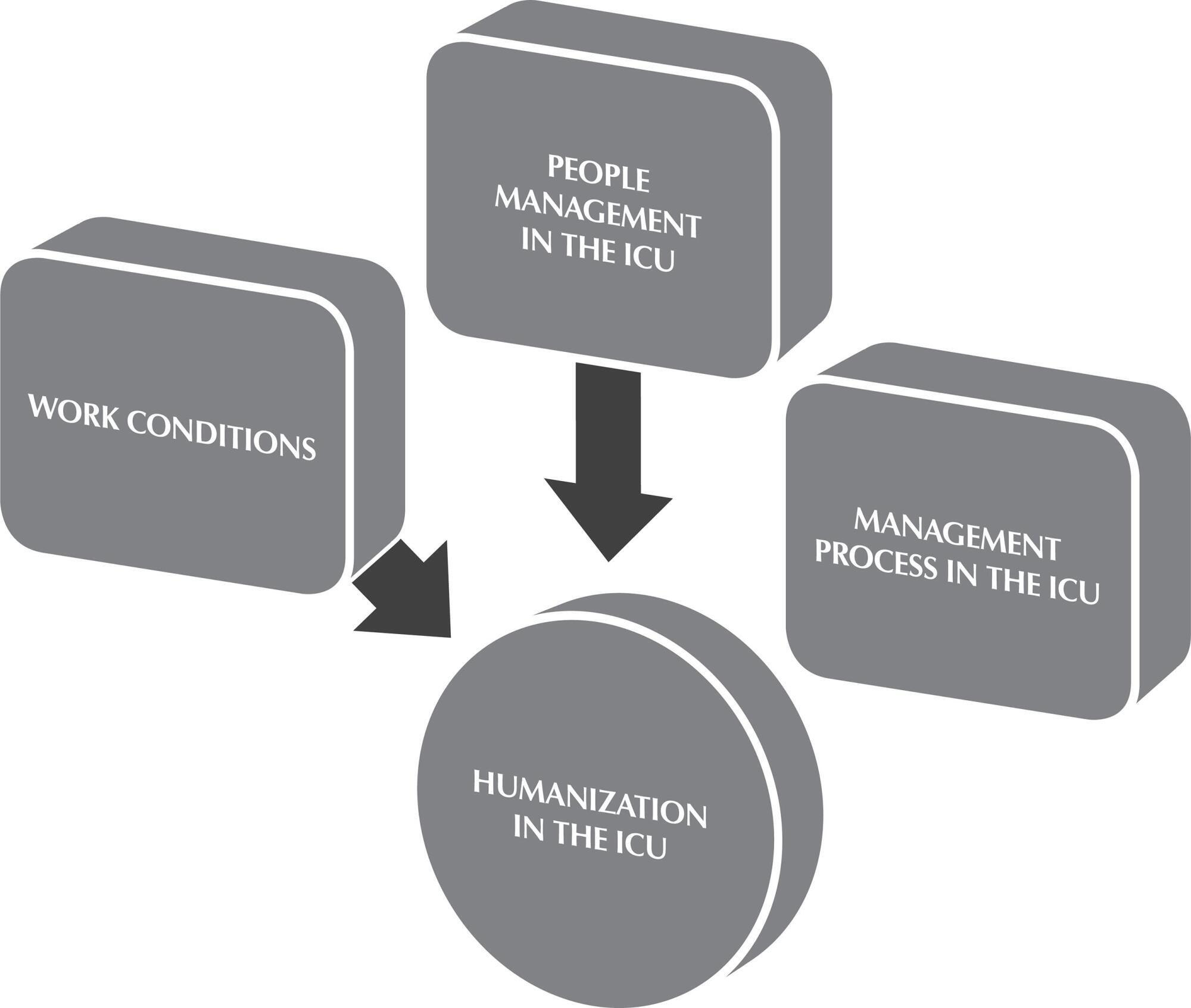-
REVIEW01-01-2018
The nurses’ work process in different countries: an integrative review
Revista Brasileira de Enfermagem. 2018;71(2):413-423
Abstract
REVIEWThe nurses’ work process in different countries: an integrative review
Revista Brasileira de Enfermagem. 2018;71(2):413-423
DOI 10.1590/0034-7167-2016-0468
Views0See moreABSTRACT
Objective:
To analyze the characteristics of nurses’ work process in different countries.
Method:
We have used the integrative review method and selected 84 publications (articles, theses and dissertations) in national and foreign thesis banks and databases. We analyzed the evidence based on dialectical materialism.
Results:
The rejection of managerial tasks hides the singularity of nurses’ work, due to the failure to understand the inseparable nature of managerial and healthcare tasks, given that it is what provides the expertise to coordinate the nursing work process and guide the healthcare work processes. The social and technical division is present in the work process in all countries studied, albeit in different ways. The nurse’s position in the healthcare work process is subordinated to that of the physician.
Conclusion:
The characteristics are similar. The rejection of the dual nature of the work by nurses themselves due to alienation results in the non-recognition of their own work.
-
RESEARCH01-01-2018
Validation and reliability of the scale Self-efficacy and their child’s level of asthma control
Revista Brasileira de Enfermagem. 2018;71(2):406-412
Abstract
RESEARCHValidation and reliability of the scale Self-efficacy and their child’s level of asthma control
Revista Brasileira de Enfermagem. 2018;71(2):406-412
DOI 10.1590/0034-7167-2016-0528
Views0See moreABSTRACT
Objective:
To evaluate the psychometric properties in terms of validity and reliability of the scale Self-efficacy and their child’s level of asthma control: Brazilian version.
Method:
Methodological study in which 216 parents/guardians of children with asthma participated. A construct validation (factor analysis and test of hypothesis by comparison of contrasted groups) and an analysis of reliability in terms of homogeneity (Cronbach’s alpha) and stability (test-retest) were carried out.
Results:
Exploratory factor analysis proved suitable for the Brazilian version of the scale (Kaiser-Meyer-Olkim index of 0.879 and Bartlett’s sphericity with p < 0.001). The correlation matrix in factor analysis suggested the removal of item 7 from the scale. Cronbach's alpha of the final scale, with 16 items, was 0.92.
Conclusion:
The Brazilian version of Self-efficacy and their child’s level of asthma control presented psychometric properties that confirmed its validity and reliability.

-
RESEARCH01-01-2018
Spiritual well-being and hope in the preoperative period of cardiac surgery
Revista Brasileira de Enfermagem. 2018;71(2):398-405
Abstract
RESEARCHSpiritual well-being and hope in the preoperative period of cardiac surgery
Revista Brasileira de Enfermagem. 2018;71(2):398-405
DOI 10.1590/0034-7167-2016-0642
Views0See moreABSTRACT
Objective:
To characterize relations between spiritual well-being and hope of patients in the preoperative period of cardiac surgery.
Method:
Exploratory cross-sectional study with quantitative approach, performed in the infirmaries of a reference hospital in cardiology. We evaluated 69 patients hospitalized in preoperative period of myocardial revascularization, valve repair or replacement.
Results:
We verified that patients hold relevant scores of hope and welfare in all areas, being the existential well-being significantly lower than the religious one. The average of the spiritual well-being score was below the required to be considered high. There was no significant correlation between welfare and hope.
Conclusion:
Nurses should develop a watchful eye to these issues, be trained in specific protocols of spiritual anamnese and use the real moments of care to strengthen the patients.
-
RESEARCH01-01-2018
Body consciousness of people with intestinal stomach: A phenomenological study
Revista Brasileira de Enfermagem. 2018;71(2):391-397
Abstract
RESEARCHBody consciousness of people with intestinal stomach: A phenomenological study
Revista Brasileira de Enfermagem. 2018;71(2):391-397
DOI 10.1590/0034-7167-2016-0666
Views0See moreABSTRACT
Objective:
to describe the bodily awareness of people with stomies.
Method:
a descriptive study with a qualitative approach, carried out in the Ostomized Association of the State of Ceará, through semi-structured interviews with ten people with intestinal stomies, according to Merleau-Ponty’s phenomenological thinking.
Results:
two categories of analysis emerged: The body that I have, in which the sensations of deficiency, imperfection and bad odor add to the feeling of strangeness towards one’s own body, affecting the way of being in the world of each deponent; and The body that others perceive, in which the stoma is seen as an embarrassing and complex experience, since it hampers daily activities and conviviality with other people.
Final considerations:
The corporeal consciousness of Being-Stomp-in-the-world requires the movement to reconstruct the senses of the body from the body I have and from that which others perceive.
-
RESEARCH01-01-2018
Construction and validation of forms: systematization of the care of people under hemodialysis
Revista Brasileira de Enfermagem. 2018;71(2):379-390
Abstract
RESEARCHConstruction and validation of forms: systematization of the care of people under hemodialysis
Revista Brasileira de Enfermagem. 2018;71(2):379-390
DOI 10.1590/0034-7167-2015-0130
Views0See moreABSTRACT
Objective:
create and validate forms to subsidize the systematization of nursing care with people on hemodialysis.
Method:
institutional case study to support the systematization of assistance from the construction of forms for data collection, diagnoses, interventions and nursing results, using cross-mapping, Risner’s reasoning, Neuman’s theory, taxonomies of diagnoses, interventions and nursing results with application in clinical practice and validation by focal group with specialist nurses.
Results:
18 people on hemodialysis and 7 nurses participated. Consensus content of form matter with specialist nurses in the area (Crombach 0.86). The papers captured 43 diagnoses, 26 interventions and 78 nursing results depicting human responses in their singularities.
Final considerations:
the validated forms fill a gap by enabling the capture of human responses from people on hemodialysis and by subsidizing the planning of nursing care on a scientific basis.

-
RESEARCH01-01-2018
Perception of nursing workers humanization under intensive therapy
Revista Brasileira de Enfermagem. 2018;71(2):372-378
Abstract
RESEARCHPerception of nursing workers humanization under intensive therapy
Revista Brasileira de Enfermagem. 2018;71(2):372-378
DOI 10.1590/0034-7167-2016-0485
Views0See moreABSTRACT
Objective:
understand the perception of nursing workers working in the Intensive Care Unit (ICU) regarding humanization in the work environment.
Method:
we used the reference of phenomenology, structure of the phenomenon. Participated 25 nursing professionals working in an adult ICU of a university hospital, through focused interviews, answering the guiding question: What do you understand by humanization of the working conditions of the nursing team working in the ICU?
Results:
the analysis revealed the themes: humanization in the ICU; working condition in the ICU; management of people in the ICU and management process in the ICU.
Final considerations:
humanization is necessary through the change of the work environment and the managerial process, privileging the participatory management model as a way to transform theory into practice and value the worker.

-
01-01-2018
Costs of examinations performed in a hospital laboratory in Chile
Revista Brasileira de Enfermagem. 2018;71(2):363-371
Abstract
Costs of examinations performed in a hospital laboratory in Chile
Revista Brasileira de Enfermagem. 2018;71(2):363-371
DOI 10.1590/0034-7167-2016-0688
Views0ABSTRACT
Objective:
To determine the total average costs related to laboratory examinations performed in a hospital laboratory in Chile.
Method:
Retrospective study with data from July 2014 to June 2015. 92 examinations classified in ten groups were selected according to the analysis methodology. The costs were estimated as the sum of direct and indirect laboratory costs and indirect institutional factors.
Results:
The average values obtained for the costs according to examination group (in USD) were: 1.79 (clinical chemistry), 10.21 (immunoassay techniques), 13.27 (coagulation), 26.06 (high-performance liquid chromatography), 21.2 (immunological), 3.85 (gases and electrolytes), 156.48 (cytogenetic), 1.38 (urine), 4.02 (automated hematological), 4.93 (manual hematological).
Conclusion:
The value, or service fee, returned to public institutions who perform laboratory services does not adequately reflect the true total average production costs of examinations.
Keywords:Average CostsDiagnoses and Laboratory ExaminationsDirect and Indirect CostsProduction of ExaminationsService FeeSee more -
01-01-2018
Costos de exámenes en un laboratorio clínico hospitalario de Chile
Revista Brasileira de Enfermagem. 2018;71(2):363-371
Abstract
Costos de exámenes en un laboratorio clínico hospitalario de Chile
Revista Brasileira de Enfermagem. 2018;71(2):363-371
DOI 10.1590/0034-7167-2016-0688
Views0See moreRESUMEN
Objetivo:
determinar los costos medios totales asociados a la realización de exámenes de laboratorio en un laboratorio clínico hospitalario de Chile.
Método:
estudio retrospectivo con información del período julio 2104 a junio 2015. Se seleccionaron 92 exámenes clasificados en diez grupos según la metodología de análisis. Los costos se estimaron como la suma de costos directos e indirectos de laboratorio y factores indirectos institucionales.
Resultados:
se obtuvieron los valores promedio para los costos según grupo de exámenes (en dólares): 1,79 (química clínica), 10,21 (técnicas de inmunoensayos), 13,27 (coagulación), 26,06 (cromatografía líquida de alta resolución), 21,2 (inmunológicos), 3,85 (gases y electrolitos), 156,48 (citogenéticos), 1,38 (orina), 4,02 (hematológicos automatizados), 4,93 (hematológicos manuales).
Conclusión:
el valor que retorna a las instituciones públicas, o arancel por servicio, que prestan servicios de laboratorio no refleja adecuadamente los verdaderos costos medios totales de producción de exámenes.
-
EXPERIENCE REPORT01-01-2017
Focus group on qualitative research: experience report
Revista Brasileira de Enfermagem. 2017;70(2):424-429
Abstract
EXPERIENCE REPORTFocus group on qualitative research: experience report
Revista Brasileira de Enfermagem. 2017;70(2):424-429
DOI 10.1590/0034-7167-2016-0091
Views1See moreABSTRACT
Objective:
to report the experience of applying the focus group technique for production of data in qualitative research.
Method:
four group sessions were held from May to June 2015, with the participation of professionals from the public sector of PHC and from specialized service.
Results:
the way focus group was developed is described in steps: planning, recruitment, ambience, group sessions, and evaluation.
Conclusion:
we highlight that the focus group, as a technique to produce data in collective space, can contribute not only to the construction of knowledge in Nursing, but also to the research approach with the assistance practice.

-
RESEARCH01-01-2017
Guide of attributes of the nurse’s political competence: a methodological study
Revista Brasileira de Enfermagem. 2017;70(3):526-534
Abstract
RESEARCHGuide of attributes of the nurse’s political competence: a methodological study
Revista Brasileira de Enfermagem. 2017;70(3):526-534
DOI 10.1590/0034-7167-2016-0483
Views0See moreABSTRACT
Objective:
To build and validate a guide of attributes of the nurse’s political competence.
Method:
Methodological research. This study comprised the construction of the instrument through literature review; experts validation of pre-established attributes for composing the guide; and clinical validation in the nurses work environment/reality. The data collection took place in the months from August to October 2014, and the analysis was based on the content analysis of Bardin and use of Epi info 3.5. All ethical precepts have been complied with.
Results:
From 29 attributes found in the literature, 25 have been validated by experts. Clinical/practical validation involved the participation of 43 nurses, who observed that the attributes are not articulated with the professional practices developed by them.
Conclusion:
The attributes of the nurse’s political competence were identified with support of literature. It is concluded that the professionals still have limited and fragmented perception of political competence, expressing difficulty/limitation.
-
ORIGINAL ARTICLE11-26-2022
Vulnerability and quality of life of older persons in the community in different situations of family care
Revista Brasileira de Enfermagem. 2022;75:e20210034
Abstract
ORIGINAL ARTICLEVulnerability and quality of life of older persons in the community in different situations of family care
Revista Brasileira de Enfermagem. 2022;75:e20210034
DOI 10.1590/0034-7167-2021-0034
Views0See moreABSTRACT
Objective:
to correlate socio-contextual aspects, physical vulnerability and quality of life of older persons in the community in different situations of family care.
Methods:
epidemiological, a cross-sectional and analytical study, with elderly people in the community (n=769), with application of the instruments: Vulnerable Elders Survey-13 (VES-13), World Health Organization Quality of Life for Older Persons (WHOQOL-OLD) and the World Health Organization Quality of Life (WHOQOL-BREF); and socio-contextual data questionnaire.
Results:
the population assessed presented an average of regular quality of life in both the WHOQOL-BREF and the WHOQOL-OLD. Older non-vulnerable persons (62.2%) and those with close family contact (82.6%) have a better quality of life than the vulnerable (p<0.0001).
Conclusion:
lower quality of life scores and more distant families are related to vulnerable elderly people; thus, the assessment of family proximity and physical vulnerability of older persons is shown to be an important factor in improving quality of life.
-
ORIGINAL ARTICLE10-09-2023
Independent and combined effects of lifestyle behaviors on adolescent health-related quality of life
Revista Brasileira de Enfermagem. 2023;76(4):e20220780
Abstract
ORIGINAL ARTICLEIndependent and combined effects of lifestyle behaviors on adolescent health-related quality of life
Revista Brasileira de Enfermagem. 2023;76(4):e20220780
DOI 10.1590/0034-7167-2022-0780
Views0See moreABSTRACT
Objective:
To investigate the independent and combined effects of lifestyle behaviors, including physical activity, sedentary behavior, sleep duration and food intake, in the health-related quality of life (HRQoL) of Brazilian adolescents.
Methods:
Cross-sectional school-based study, with the participation of 306 adolescents aged 14 to 18 years. A questionnaire was applied with structured questions to collect lifestyle behaviors data. Perception of the HRQoL was identified using the Kidscreen-27. The study used covariance analysis and linear regression models for statistical analysis.
Results:
Adolescents who reported ≤ 2 hours/day of screen-based sedentary behavior and sleep duration equivalent to 8-10 hours/night presented significantly higher HRQoL. Adolescents who reported joint adherence ≥ 3 healthy lifestyle behaviors demonstrated approximately two [OR=2.12] to three times [OR=3.04] more chance of presenting higher perceptions of HRQoL.
Conclusion:
Although healthy lifestyle behaviors had a positive independent effect on HRQoL, joint adherence to healthy behaviors enhances the cumulative effect.

-
ORIGINAL ARTICLE12-04-2023
Social representation of spiritual surgeries in Umbanda: culture, religion and contributions of nursing theory
Revista Brasileira de Enfermagem. 2023;76(6):e20220787
Abstract
ORIGINAL ARTICLESocial representation of spiritual surgeries in Umbanda: culture, religion and contributions of nursing theory
Revista Brasileira de Enfermagem. 2023;76(6):e20220787
DOI 10.1590/0034-7167-2022-0787
Views1See moreABSTRACT
Objective:
to analyze the social representation of spiritual surgeries in Umbanda for Bantu-Amerindian ritual mediums and their contributions to the cross-cultural care proposed by Madeleine Leininger.
Methods:
a descriptive-exploratory, qualitative study, supported by the procedural approach of Social Representation Theory and Transcultural Nursing Theory, carried out with 30 Umbanda mediums of the Bantu-Amerindian ritual through interviews, submitted to the Iramuteq software for lexical analysis.
Results:
mostly women, white, with an average of 46 years old and approximately 14 years of practice in Umbanda participated. The social representation of spiritual surgeries in Umbanda is objectified and anchored through a biomedical vision of care, encompassing a set of beliefs, values and practices as religious treatments, through faith, whose main objective is healing.
Final considerations:
spiritual surgeries are a form of transcultural care, according to Madeleine Leininger’s propositions, as they integrate the culture of a group through health care in Umbanda.

-
ORIGINAL ARTICLE05-29-2023
Quality of life from women’s perspective in the exercise of sex work: a study of social representations
Revista Brasileira de Enfermagem. 2023;76:e20220169
Abstract
ORIGINAL ARTICLEQuality of life from women’s perspective in the exercise of sex work: a study of social representations
Revista Brasileira de Enfermagem. 2023;76:e20220169
DOI 10.1590/0034-7167-2022-0169
Views1See moreABSTRACT
Objectives:
to analyze the social representations elaborated by sex workers from Alto Sertão Produtivo Baiano about quality of life.
Methods:
a qualitative study, based on the Social Representation Theory, carried out in the region of Alto Sertão Produtivo Baiano, with 30 sex workers. Individual in-depth interview was carried out, with speeches organized in a corpus and treated in IRAMUTEQ, enabling lexical analysis for Descending Hierarchical Classification.
Results:
four thematic classes emerged, in which social representations of quality of life pervade: money earned to supply needs; association with healthy living and obtaining health (physical and mental); balance of emotions (although there are some negative sensations such as fear and anxiety); and faith in a deity.
Final Considerations:
the social representations elaborated by sex workers about quality of life are anchored in concepts, subjective and practical, punctuated by the World Health Organization.

-
ORIGINAL ARTICLE05-29-2023
Violence in rural areas against disabled people from the perspective of their families
Revista Brasileira de Enfermagem. 2023;76:e20220404
Abstract
ORIGINAL ARTICLEViolence in rural areas against disabled people from the perspective of their families
Revista Brasileira de Enfermagem. 2023;76:e20220404
DOI 10.1590/0034-7167-2022-0404
Views0See moreABSTRACT
Objectives:
to know the violence spoken and felt by disabled people, living in rural areas, from the perspective of their families.
Methods:
a descriptive-exploratory and qualitative study, carried out in four municipalities in Rio Grande do Sul, Brazil. Twelve family members who lived with disabled people in rural areas participated. Data were collected through semi-structured interviews and analyzed using thematic content analysis.
Results:
disabled people, living in rural areas, experienced physical, psychological and sexual violence, perpetrated by family members, colleagues, community members and health professionals. Adaptations were mentioned in family dynamics for the care of disabled people, social, financial and leisure impacts, and challenges in access and accessibility to education and health services.
Final Considerations:
violence against this population manifests itself in a reality with socioeconomic and family particularities, marked by exclusion, disrespect and denial of rights and access to fundamental goods and services.

-
ORIGINAL ARTICLE12-08-2023
Care for older adults with disabilities in Long Term Care Facility
Revista Brasileira de Enfermagem. 2023;76:e20220767
Abstract
ORIGINAL ARTICLECare for older adults with disabilities in Long Term Care Facility
Revista Brasileira de Enfermagem. 2023;76:e20220767
DOI 10.1590/0034-7167-2022-0767
Views0See moreABSTRACT
Objective:
to analyze the constitution of care offered to older adults with disabilities, from Long Term Care Facility professionals’ perspective.
Methods:
this is a discourse analysis based on the post-structuralist framework. Participants in this study are professionals involved in the care for older adults, totaling 14 respondents, 13 women and one man.
Results:
from professionals’ perspective, there is a fine line between caring for older adults with disabilities and maintaining their autonomy. Care in which autonomy is restricted predisposes older adults to a process of dependency.
Final considerations:
caring for older adults with disabilities constitutes the challenge between caring and maintaining independence. Thus, older adult-centered care should be taken as a premise so that their individualities are respected.
Search
Search in:
Nuvem de Tags
Adolescente (85) Atenção Primária à Saúde (239) COVID-19 (91) Criança (91) Cuidados de Enfermagem (269) Educação em Enfermagem (151) Educação em Saúde (139) Enfermagem (930) Enfermagem Pediátrica (86) Estudantes de Enfermagem (77) Estudos de Validação (131) Família (87) Idoso (208) Promoção da Saúde (99) Qualidade de Vida (104) Saúde do Trabalhador (86) Saúde Mental (145) Saúde Pública (82) Segurança do Paciente (150) Tecnologia Educacional (100)



